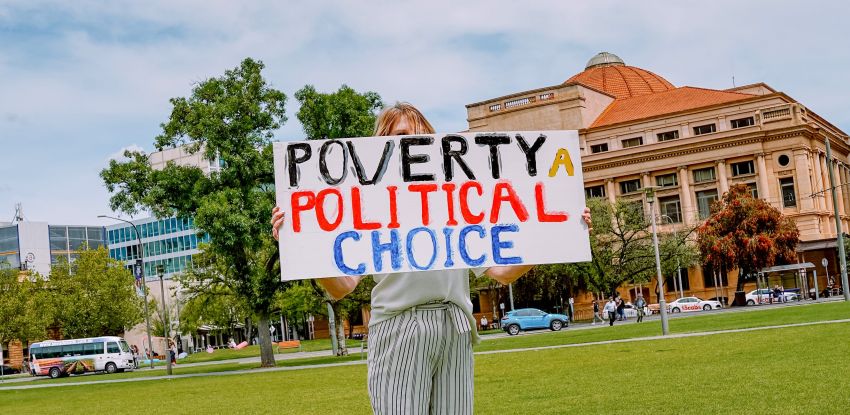
More and more people are falling into poverty, according to the Poverty in Australia 2025 report, released by the Australian Council of Social Services (ACOSS).
It found that, in 2022–23, more than one in seven people lived below the poverty line — about 3.7 million people. That is up from one in eight over 2020–21. Shockingly, it said 757,000 children — one in six — live in poverty.
ACOSS found that the rising levels of poverty were largely due to the COVID-19 income support being removed and the huge rise in rent prices.
Rents have risen dramatically since 2020; the median rent for a unit has gone from $372 to $566 in just five years — a 50% increase.
Rents for houses are even higher in major cities. A March report by Everybody’s Home found that “virtually no region of Australia is affordable for people on low and middle incomes”.
Paying more than 30% of income on rent is referred to as “rental stress”, but the poorest 20% have been paying more than 50% of their income on rent since 2014–15, rising to 57% in 2022–23.
ACOSS used the relative poverty line, which refers to 50% of the median income, and in 2022–23 was about $584 a week for a single adult. It found that the average incomes of people in poverty were $390 a week below the poverty line.
The JobSeeker payment is set at just $396.80 a week for a single person, which is $187 below the poverty line. Families with two school age children, who receive Family Tax Benefits as well as JobSeeker, are even worse off — $299 below the poverty line.
Students on Youth Allowance who do not live with their parents, and are often therefore paying rent, bills and groceries, only receive $266.50 a week. That is $317.50 below the poverty line and $105.50 below the median rent of a unit.
Surviving on these meagre payments is an uphill battle. Melissa Fisher, an artist, anti-poverty advocate and JobSeeker recipient, told the ABC, “every day becomes a battle of whether you eat three times a day or if you see a doctor”.
Poverty compounds physical and mental health issues and makes finding additional employment more difficult. The band-aid approach also costs the state more.
A report by the NSW Council of Social Service, released in November last year, found that child poverty costs the NSW government $60 billion a year. Child poverty has long-term impacts, including health issues and less access to education.
The federal government spends $4 billion a year maintaining the Job Service Provider system, which is designed to surveil and punish welfare recipients who do not complete its arduous “mutual obligations”.
If these funds instead went to those living in poverty through significant boosts to JobSeeker, Youth Allowance, Disability Support Pension and other payments, it would lift them above the poverty line and have many beneficial flow-on effects.
Governments know this but decide against that path for ideological and material reasons. To maintain the system that puts profits before people's needs, they need to shore up prejudices against the poor and those who lack family support. It also helps keep a lid on wage rises, as unsupported people are desperate enough to take low pay.
Anti-poverty advocates say it would be cheaper to end poverty than it is to maintain it.
The Social Dividend, a report released by consulting firm Mandala Partners last year, found that for every $100 invested in addressing poverty, there was a $24 “social return”, including to health and child development.
There are also harder to quantify benefits that would flow from removing all the barriers poverty imposes; people would be able to develop as independent, creative and collaborative participants in society.
Besides ensuring adequate welfare payments, investing in public housing would have a big impact on poverty. Investing in truly affordable homes and taking away developers’ tax incentives to profiteer on what should be a human right is another policy lever governments refuse to deploy.
But Prime Minister Anthony Albanese, who grew up in public housing, is not interested in those solutions. Instead, Labor is spending billions on developing the United States war alliance and subsidising fossil fuel conglomerates.
Ending poverty is one step in the fight for a more just, sustainable world. Get involved by becoming a Green Left supporter today.
